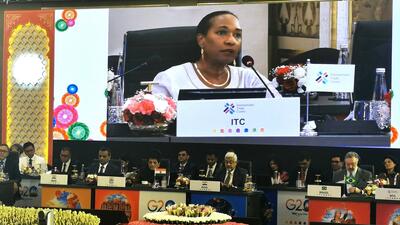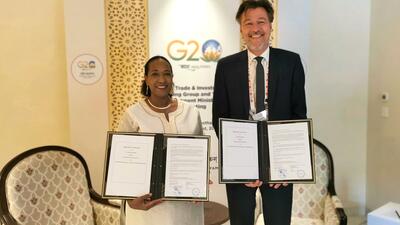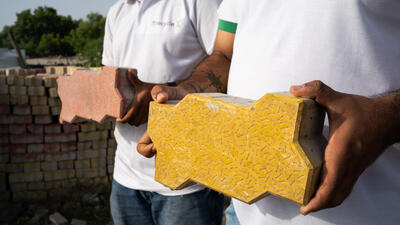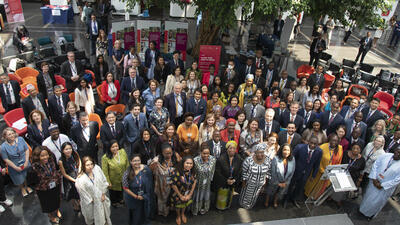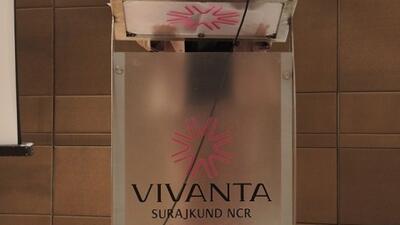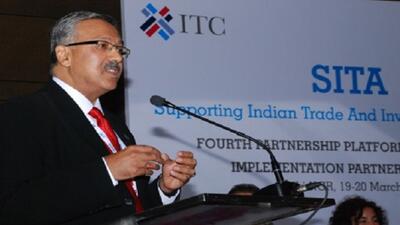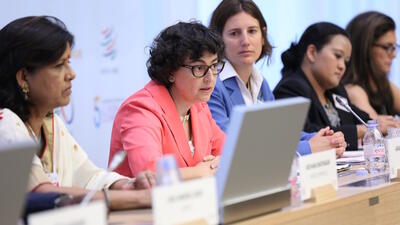Panel: SMEs to benefit most from a trade facilitation agreement
(BALI, INDONESIA) – An agreement on easing customs procedures, if reached, will be particularly beneficial to small businesses in developing countries, agreed members of a panel held at the Ninth World Trade Organization (WTO) Ministerial Conference earlier today. The panel, which was organized by CUTS International included representatives from small and medium-sized enterprises (SMEs), trade negotiators from both developed and developing countries, along with Rajesh Aggarwal, ITC’s Chief of Business and Trade Policy.
“Big companies can always post a dedicated person at customs to get their goods cleared. But SMEs cannot do that, so they suffer the consequences,” Mr. Aggarwal said. “SMEs suffer disproportionately when trade facilitation conditions are not met.”
“Onerous customs procedures can preclude SMEs from participation in export markets as it affects them disproportionately compared to larger companies,” agreed Stephen Dietz of Australia’s mission to the WTO.
“In small states all enterprises are SMEs. Small business in small open economies rely on export revenues and so depend on border transactions,” said Ricardo James, Head of the Mission of the Organization of Eastern Caribbean States (OECS) in Geneva. “Trade facilitation is pivotal to increase the competitiveness of my region.” Governments in OECS countries will work with the private sector to implement the agreement in the best interest of businesses, he said. The provision that calls for implementation of single-window procedures, which will allow cross-border traders to submit regulatory documents at a single location. “This would significantly lower transaction costs and make SMEs more competitive,” he said.
The agreement will lead to changes in developed countries as well, bringing further benefits to developing country SMEs, said Deep Kapuria, head of an Indian auto parts manufacturer and Chairman of the National Micro, Small and Medium Enterprise Council at the Confederation of Indian Industries. “When a shipment arrives in the United States it needs to wait for screening even though it had already been screened in India,” he said, adding that the corresponding delay is often detrimental.
“While the ministers are focusing on an agreement, there are certain issues that need to be addressed more effectively, particularly those related to SMEs and consumers,” said Rashid S Kaukab, Head of the Geneva office of CUTS International, adding that efforts will need to be made to put the agreement into practice, so that SMEs can benefit.
CUTS would like to build a critical mass of local stakeholders and educate them on benefits of the agreement, so that they are aware of the changes in rules, said Archana Jatkar, Deputy Head of CUTS International.
ITC will also provide assistance in this area, Mr. Aggarwal said. ITC will work with SMEs to increase their knowledge of the new rules and benefits to them. It will also assist developing country governments with the preparation of print and online communications materials to inform SMEs of the new rules under the transparency provision of the agreement. ITC will also facilitate dialogue between the public and private sectors, providing SMEs with a platform to share with government representatives the kind of information they need in order to enhance their export competitiveness and to provide a feedback mechanism on the implementation of the new rules on the ground.




